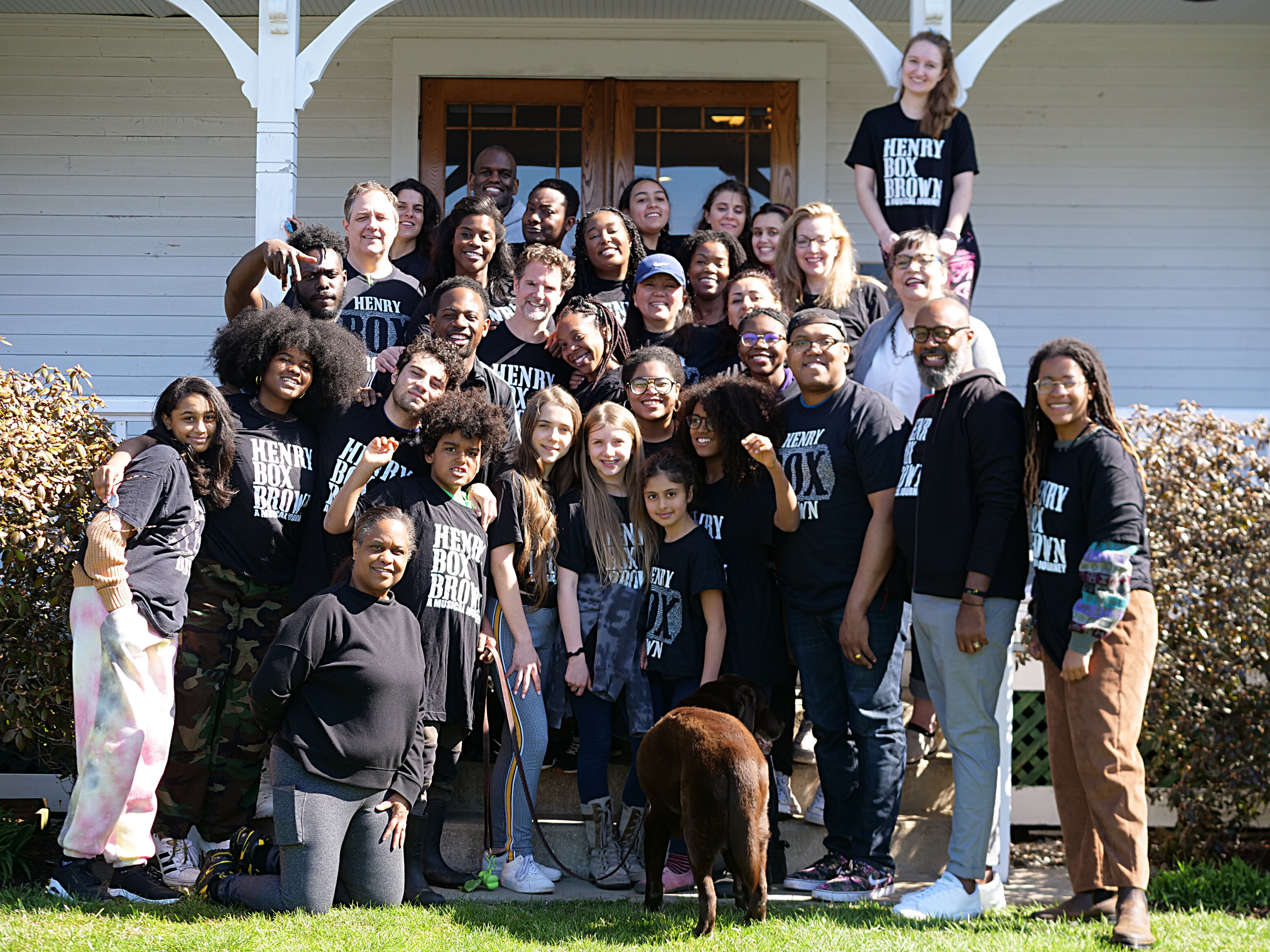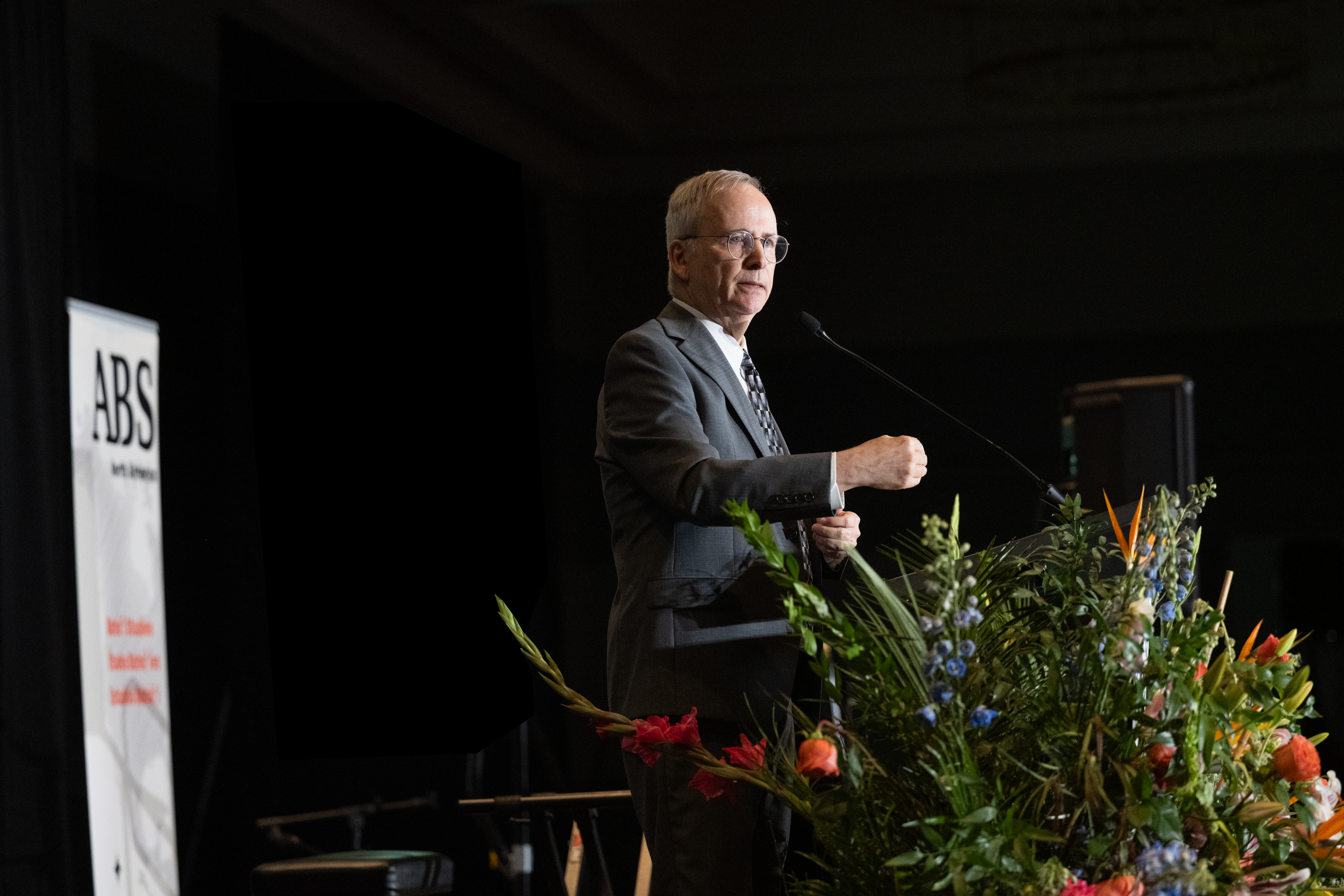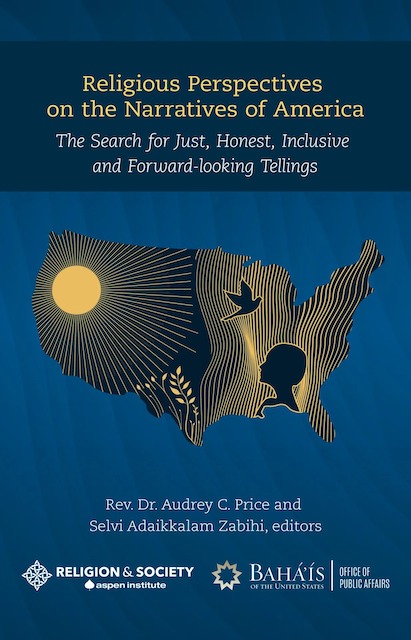
Theater and dialogue project going nationwide to empower voices for change
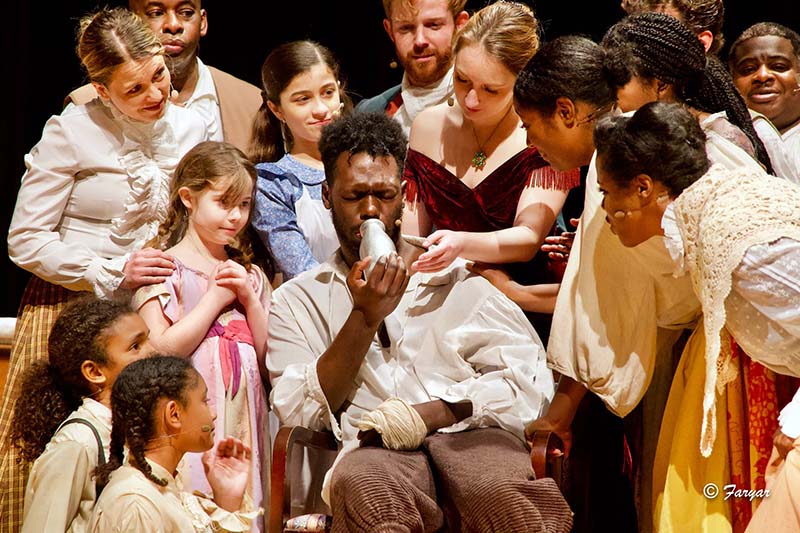
The delay is disappointing, but the vision remains strong.
The Children’s Theater Company of New York is keeping alive the plans for a multi-city tour of Henry Box Brown and Glimmerings of Hope, musical stage productions whose development has been fostered by Louhelen Baha’i School in Davison, Michigan.
Importantly, schools and organizations in several tour cities are partnering with Baha’is, aiming to help youth and families discover hidden African-American history — and providing a space to strengthen their voices in shaping the future.
In response to the COVID-19 pandemic, a planned mid-May run of shows in Jackson, Tennessee, was canceled “for all the right reasons,” says Mehr Mansuri, artistic director of the Children’s Theater Company (CTC), whose operating principles are inspired by the Baha’i teachings.
But that cancellation only galvanized a team of Tennessee Baha’is that includes Penny Roberts, Zia Goli and musician Eric Dozier. Working with the offices of the mayor, the superintendent of schools, and the Jackson City Arts Council, Roberts secured a space grant for a three-day August booking at a local theater.
Auspicious start in Georgia
These developments came on the heels of a successful set of shows in Savannah, Georgia, in February that attracted 1,200 people — many in family groups, many from high school and college populations, and many from the general public.
“We had three different showings and each group was different. I was astounded at the diversity,” says Michael O’Neal, a Baha’i and executive director of family education organization Parent University, who hosted three Savannah performances held at a university and a performing arts center.
Built into the Henry Box Brown/Glimmerings experience are dialogues and surveys after each show. Audience members ponder what they can do in their community, what they will think differently about, and what messages from the play they believe will stay with them.
“These safe spaces for audience engagement reveal how dialogue and empathy are inextricably linked,” Mansuri says.
Young people are offered opportunities to follow up by taking part in the junior youth spiritual empowerment program, which trains middle-school-age people in becoming agents of positive change.
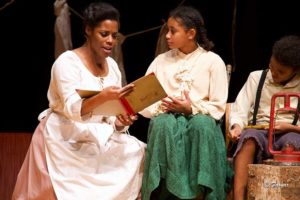
In Savannah, O’Neal says, the performances and a “robust” series of audience workshops that followed them inspired the principal of a performing arts school to pursue a future residency for the musicals in partnership with Parent University and CTC.
He says the project also got “a major endorsement from Mayor Van Johnson to offer future opportunities to the city of Savannah and its families.”
As the project’s organizers “hope for the best and plan for the worst” amid the unfolding pandemic, Mansuri says they are working to arrange productions beginning later this year in Chicago; Pearl City, Florida; Dover, New Hampshire; and Los Angeles.
Like Savannah and Jackson, she notes, those locations were chosen because they have communities where Baha’i-initiated core activities are highly active and where people are prepared to partner with schools, colleges and civic groups to ensure follow-up with guests and invited audiences.
The story and its journey
Henry Box Brown: A Musical Journey is the latest of many original musical productions generated by the company’s creative collaborators over the past two decades. Most have had diverse casts of children and youth recruited and trained from New York neighborhoods.
But this one represents a departure. In a quest for an honest, inspirational story reflecting the largely obscured history of African Americans, Mansuri came upon the Narrative of Henry Brown, by a young man enslaved in Virginia who in 1851 daringly mailed himself in a crate to seek freedom in the North, later becoming an energetic advocate for equality.
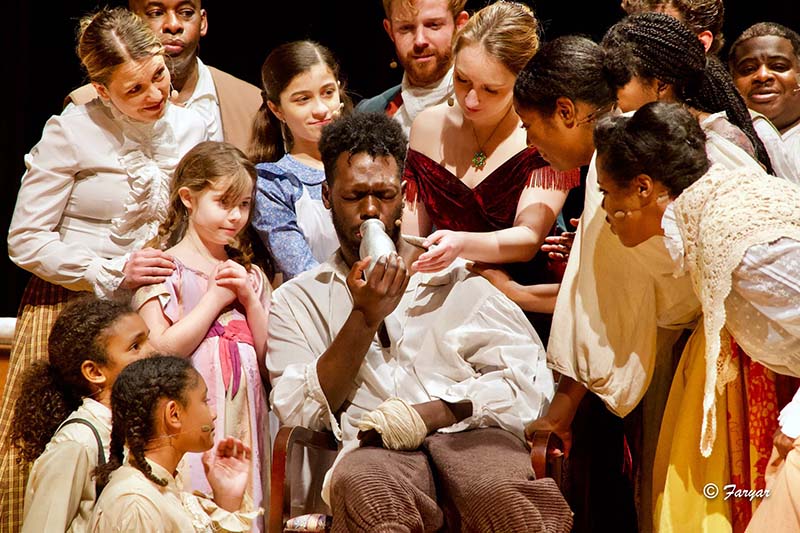
Development included consultation with Joy DeGruy, a scholar of the trauma passed across generations from enslavement and legal and cultural repression. Frank Sanchez and Mansuri wrote original songs, Dozier arranged what Mansuri calls “a show-stopping medley” of Negro spirituals, and Jack Lenz contributed research and orchestral music.
They decided that Henry Box Brown merited Broadway-level acting and musical talent, and in 2018 such a cast was put together for performance runs in New York and the United Kingdom.
Nancy Nelson Ewing, CTC’s director of education and a playwright and theatrical educator, is mindful as an African American of the spiritual injuries many suffer day to day facing systemic racism.
So she accompanied the cast in creating what she calls “a uniquely safe space in rehearsals — thereby avoiding a re-injuring of actors from show to show … allowing them to inject life and animate the words in order to create the world of the story.”
Getting the audience involved
It was in collaboration with Louhelen in 2019 that the educational effort was extended to audiences. Performances and conversations at several schools in nearby Flint, Michigan, added to the project’s foundation of research and learning.
Those successes encouraged the development of a second musical, based on Glimmerings of Hope, a text of the Baha’i-inspired junior youth spiritual empowerment program. Centered on young people, the story at the heart of that book is designed to get adolescents and youth talking about how to respond spiritually and constructively to troubling situations.
CTC worked with Louhelen and the New Standard Academy in Flint to launch a pilot production of Glimmerings in 2019. In parallel, a number of middle-school-age students studied the junior youth workbook.
The model worked out at Louhelen is a basis for learning as the nationwide tour project develops.
“It is a thrill,” Mansuri says, to apply the healing Baha’i teachings “not only through theater as a tool for moral reasoning, but also through a robust audience-engagement program that brings together both youth and adults and leads to genuine conversations, empowerment of youth, and social action.”


